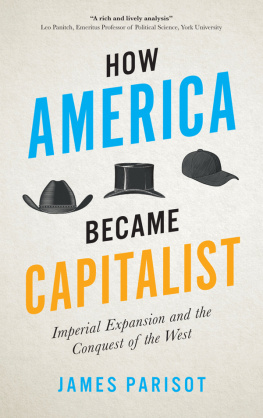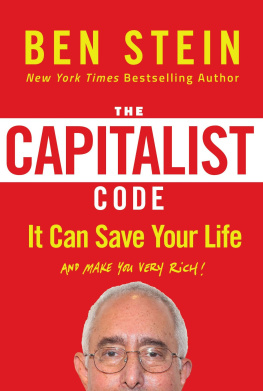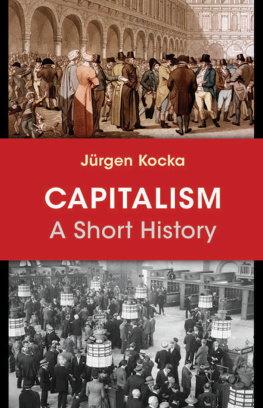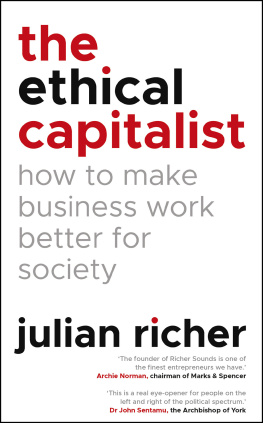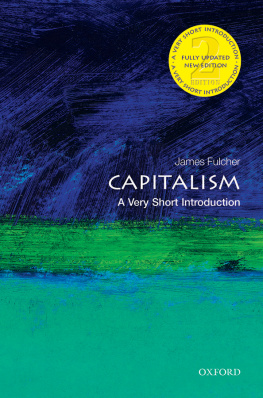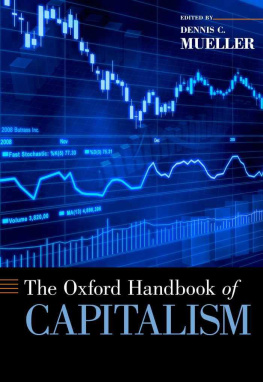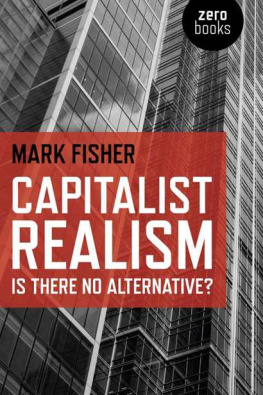Contents
Guide
How America Became Capitalist
How America Became Capitalist
Imperial Expansion and the Conquest of the West
James Parisot

First published 2019 by Pluto Press
345 Archway Road, London N6 5AA
www.plutobooks.com
Copyright James Parisot 2019
The right of James Parisot to be identified as the author of this work has been asserted by him in accordance with the Copyright, Designs and Patents Act 1988.
British Library Cataloguing in Publication Data
A catalogue record for this book is available from the British Library
ISBN 978 0 7453 3788 3 Hardback
ISBN 978 0 7453 3787 6 Paperback
ISBN 978 1 7868 0386 3 PDF eBook
ISBN 978 1 7868 0388 7 Kindle eBook
ISBN 978 1 7868 0387 0 EPUB eBook
This book is printed on paper suitable for recycling and made from fully managed and sustained forest sources. Logging, pulping and manufacturing processes are expected to conform to the environmental standards of the country of origin.
Typeset by Stanford DTP Services, Northampton, England
Simultaneously printed in the United Kingdom and United States of America
Contents
Acknowledgements
During the time this book was written, from its inception as a graduate school paper, to a dissertation, to its completed form, I worked as an adjunct instructor at five different universities. Writing a book while working as a precarious adjunct university employee can be an awkward and difficult experience. While many books contain statements of all the institutional support the scholar received, for an adjunct struggling to write while surviving by juggling whatever teaching positions they may find, and without a stable response to the question asked at conferences what school are you affiliated with? it is a complicated task to write a list of those who helped you through the process. This is due to the fact that adjunct instructors are generally treated as economic calculations on a spreadsheet, names to fill classes, and faceless figures floating in and out of departments. More broadly, the adjunctification of university teachers has reached a crisis point as well over two-thirds of faculty, in the US case, are some form of precarious labor. This is the result of the adoption of the business model of the university which puts money and impact factor over the education of students. And the dominance of precarious work in academic life has hit instructors in socially marginalized positions the hardest, whether it be due to structural discrimination based upon gender or race, class discrimination against those who could not afford elite universities, or simply the pushing aside of scholars working outside of the mainstream.
That being said, I would like to thank the Filson Historical Society for providing me with funding to dig through their archives. Working with Pluto Press has also been a refreshing experience in what can be an alienated world of publishing, and David Castle and Neda Tehrani have been especially helpful in supporting this book to see the light of day.
This work could not have been written without the support of my dissertation adviser, Fred Deyo, who took the time to figure out what I was trying to argue, even in messy and incipient forms, and understood the relationship between the research itself and the material conditions under which it was written. I could not have survived those difficult years at Binghamton University without the help and guidance of Linda Zanrucha and Denise Spadine, two of the most hard working and important members of the sociology department, and everyone else who expressed solidarity over the years in which this book was written. During this time, Walden Bello also supported my pre-dissertation work, and Ana Candela went out of her way to support my progress. It is sometimes difficult to draw a line between intellectual and emotional support, and in this regard, Ege zen, Sinem Silay zen, and Alper Ecevit worked to make sure I did not lose my cvk-ness (humor) after spending countless hours studying the depressing history of the United States. Babyrani Yumnam also contributed to this project in untold ways, often resulting in a large pile of books on the dinner table. I am thankful to the many other people who helped make this work possible. These include, in no particular order: Beng Kurtege-Sefer, Akn Sefer, Deepan Ghimiray, Raju Huidrom, Katie Drouin, Nilufer Akalin, Kai Yang, Busra Ferligul, Mushahid Hussain, Alvin Camba, Nilay Ozok- Gndoan, Azat Zana Gndoan, and everyone else who expressed solidarity through those years of collective suffering.
From my days at York University in Toronto, Sean Starrs always kept me motivated with his unrestrained enthusiasm, as he continues to do so. Geoff McCormacks patience, thoughtfulness, and honesty has also served as a model for how to be both a thorough scholar and a decent human being, something that often gets lost in the world of academic egoism. Thanks also to Leo Panitch who supervised my masters thesis all those years ago, and has continued to support my progress through the academic world. I am also indebted to Brad Bauerly who took the time to read the project in its dissertation form in its entirety.
Going back to my undergraduate days at The Evergreen State College, thanks to Ellis Scharfenaker and Thomas Herndon for our jam sessions and discussions of Marxism and political economy, and to Philip Spencer for his unusual patience in reading and discussing. Adam Kohut also left a lasting political imprint on me, and remains a motivating force in pushing me to consider different ways of organizing work and social life. Special thanks to Alan Nasser for introducing me to the labor theory of value and opening my eyes as a young undergraduate.
Santino Regilmes practical wisdom has also guided me through the challenges of the publishing industry, and his good humor, combined with his sharp mind, helped to keep me moving forward. Sam Allingham has also served as a model writer-activist due to his unrelenting optimism and faith in the face of the uphill battle to organize contingent faculty. My bartender, Nice Guy Nate, also deserves gratitude for keeping our glasses full and our minds just soggy enough to sprout new ideas.
Ken Bakers humility was an inspiration for what a researcher and teacher should be. Tynesha Davis introduced me to new ideas and exemplified the passion necessary to make social change happen. Neither are here to read this book, but I hope you both would have liked it.
Thank you to my Turkish family, Aye, Ilker, and Cem Tanr, Sirin Ozgun, and most importantly Yasemin and Leyla. And of course to my American family, too many to name, so I will leave it at you know who you are. Finally, this project would not exist were it not for my grandparents, to whom I am grateful: Betty and Bob Jones, Ron and Virginia Parisot, J.P. and Sue Quinn, and Bob and Alice Glasgow.
Most importantly of all, I thank Canan Tanr, whose ever critical mind has pushed me to take this book further than I would have been able to otherwise. Her presence pushes me to be a better scholar and a better person in ways words fail to capture.
On the Prospect of
Planting Arts and Learning in America
The Muse, disgusted at an age and clime
Barren of every glorious theme,
In distant lands now waits a better time,
Producing subjects worthy fame.
In happy climes, where from the genial sun

